In the second top-level meeting since the Mumbai terror attacks, Singh and Gilani met for more than two hours, virtually signalling a thaw in relations.
In an apparent climbdown, India today agreed with Pakistan's contention that terrorism should not be linked to the composite dialogue process as prime minister Manmohan Singh and his counterpart Yousuf Raza Gilani met here to chart the "way forward" in bilateral ties.
In the second top-level meeting since the Mumbai terror attacks, Singh and Gilani met for more than two hours, virtually signalling a thaw in relations that had soured after the 26/11 strike when India suspended the dialogue process.
A joint statement issued after the meeting said both leaders agreed that terrorism is the main threat to both the countries and affirmed their resolve to fight the menace by cooperating with each other.
"Both prime ministers recognised that dialogue is the only way forward. Action on terrorism should not be linked to the composite dialogue process and these should not be bracketed," said the statement, which is seen as a climbdown for India as it has all along maintained that dialogue cannot be held till there is concrete action against terrorism emanating from Pakistan.
India has particularly been maintaining that the dialogue process cannot resume till Pakistan takes "concrete" and "visible" action against perpetrators of Mumbai attacks.
On top of it, the joint statement also contains a reference to "threats" in Balochistan, where Pakistan has been alleging Indian hand in terror incidents.
Singh said that "if acts of terrorism continue to be perpetrated, there is no question of dialogue, least of all, the composite dialogue... If there is no attempt (by Pakistan) to contain terrorism, no dialogue can succeed."
He emphasised that "So long as Pakistan territory continues to be used for perpetrating acts of terrorism directed against India, I think, the dialogue, even if it starts, cannot move forward."
Noting that there is no option but to have dialogue with Pakistan, he said, however, that he could not say what kind of talks will happen. This, he said, will be determined by the foreign secretaries of the two countries who will keep meeting as often as possible.
Singh said that any recurrence of Mumbai-type attack will be "intolerable" and that would affect the ties from moving forward.
India has particularly been maintaining that the dialogue process cannot resume till Pakistan takes "concrete" and "visible" action against perpetrators of Mumbai attacks.
On top of it, the joint statement also contains a reference to "threats" in Balochistan, where Pakistan has been alleging Indian hand in terror incidents.
Gilani told reporters after the meeting that his feeling was that India was "convinced" that the "way forward" was dialogue.
He said he had told Singh that terrorism and Mumbai attacks should not be bracketed with dialogue and he agreed.
"All core issues that were pending under composite dialogue should be discussed... That should not be bracketed with this Mumbai incident," the Pakistan prime minister said.
"They are satisfied with my commitment that whosoever was behind Mumbai attack will be brought to justice," he said.
The statement said that Singh emphasised the need for action against perpetrators of Mumbai attacks and Gilani had promised to "do everything in its power" in this regard.
During the talks, the two sides also decided to share "real-time, credible and actionable information on any future terror threats".
Singh disagreed when it was pointed out that Pakistan's projection was that the composite dialogue will not be held hostage to terror incidents. "That's not my interpretation."
Gilani said he had raised the issue of "terrorism" in Balochistan for which Pakistan accuses India.
Asked about the mention of Balochistan in the joint statement for the first time, Singh quoted Gilani as having said that people in his country were saying that India was "active" in that province.
Singh said he had told Gilani that if Pakistan has "evidence, we are ready to look at it. We are an open book. We are not afraid of discussing any of these issues."
"Both leaders agreed that the two countries will share real time, credible and actionable information on any future terrorist threats," the two-page statement said.
The talks between the two prime ministers were described as "cordial" and 'constructive".
"They considered the entire gamut of bilateral relations with a view to charting the way forward in India-Pakistan relations," the statement said.
The Singh-Gilani meeting took place a month after the Indian leader met Pakistan president Asif Ali Zardari in Russia and bluntly told him about New Delhi's concerns on terrorism emanating from Pakistani soil directed against India and the need for it to be forthwith stopped to move ahead on the dialogue process.
During the talks, Singh affirmed India's interest in a "stable, democratic, Islamic republic of Pakistan".
Both leaders agreed that the real challenge is development and the elimination of poverty. "Both leaders are resolved to eliminate those factors which prevent our countries from realising their full potential. Both agreed to work to create an atmosphere of mutual trust and confidence," the statement said.
The Indian side at the meeting included external affairs minister SM Krishna, national security adviser MK Narayanan and foreign secretary Shivshankar Menon. From the Pakistani side, foreign secretary Salman Bashir was among those present during the Singh-Gilani meeting.
![submenu-img]() House of the Dragon season 2 trailer: Rhaenyra wages an unwinnable war against Aegon, Dance of the Dragons begins
House of the Dragon season 2 trailer: Rhaenyra wages an unwinnable war against Aegon, Dance of the Dragons begins![submenu-img]() Panchayat season 3 trailer: Jitendra Kumar returns as sachiv, Neena, Raghubir get embroiled in new political tussle
Panchayat season 3 trailer: Jitendra Kumar returns as sachiv, Neena, Raghubir get embroiled in new political tussle![submenu-img]() Apple partners up with Google against unwanted tracker, users will be alerted if…
Apple partners up with Google against unwanted tracker, users will be alerted if…![submenu-img]() Meet actress whose debut film was superhit, got married at peak of career, was left heartbroken, quit acting due to..
Meet actress whose debut film was superhit, got married at peak of career, was left heartbroken, quit acting due to..![submenu-img]() Who is the real owner of Delhi's Connaught Place and who collects rent from here?
Who is the real owner of Delhi's Connaught Place and who collects rent from here?![submenu-img]() Meet man who is 47, aspires to crack UPSC, has taken 73 Prelims, 43 Mains, Vikas Divyakirti is his...
Meet man who is 47, aspires to crack UPSC, has taken 73 Prelims, 43 Mains, Vikas Divyakirti is his...![submenu-img]() IIT graduate gets job with Rs 100 crore salary package, fired within a year, he is now working as…
IIT graduate gets job with Rs 100 crore salary package, fired within a year, he is now working as…![submenu-img]() Goa Board SSC Result 2024: GBSHSE Class 10 results to be out today; check time, direct link here
Goa Board SSC Result 2024: GBSHSE Class 10 results to be out today; check time, direct link here![submenu-img]() CUET-UG 2024 scheduled for tomorrow postponed for Delhi centres; check new exam date here
CUET-UG 2024 scheduled for tomorrow postponed for Delhi centres; check new exam date here![submenu-img]() Meet man who lost eyesight at 8, bagged record-breaking job package at Microsoft, not from IIT, NIT, VIT, his salary is…
Meet man who lost eyesight at 8, bagged record-breaking job package at Microsoft, not from IIT, NIT, VIT, his salary is…![submenu-img]() DNA Verified: Is CAA an anti-Muslim law? Centre terms news report as 'misleading'
DNA Verified: Is CAA an anti-Muslim law? Centre terms news report as 'misleading'![submenu-img]() DNA Verified: Lok Sabha Elections 2024 to be held on April 19? Know truth behind viral message
DNA Verified: Lok Sabha Elections 2024 to be held on April 19? Know truth behind viral message![submenu-img]() DNA Verified: Modi govt giving students free laptops under 'One Student One Laptop' scheme? Know truth here
DNA Verified: Modi govt giving students free laptops under 'One Student One Laptop' scheme? Know truth here![submenu-img]() DNA Verified: Shah Rukh Khan denies reports of his role in release of India's naval officers from Qatar
DNA Verified: Shah Rukh Khan denies reports of his role in release of India's naval officers from Qatar![submenu-img]() DNA Verified: Is govt providing Rs 1.6 lakh benefit to girls under PM Ladli Laxmi Yojana? Know truth
DNA Verified: Is govt providing Rs 1.6 lakh benefit to girls under PM Ladli Laxmi Yojana? Know truth![submenu-img]() Ananya Panday stuns in unseen bikini pictures in first post amid breakup reports, fans call it 'Aditya Roy Kapur's loss'
Ananya Panday stuns in unseen bikini pictures in first post amid breakup reports, fans call it 'Aditya Roy Kapur's loss'![submenu-img]() Remember Harsh Lunia? Just Mohabbat child star, here's how former actor looks now, his wife is Bollywood's popular...
Remember Harsh Lunia? Just Mohabbat child star, here's how former actor looks now, his wife is Bollywood's popular...![submenu-img]() Mother's Day 2024: Bollywood supermoms who balance motherhood, acting, and run multi-crore businesses
Mother's Day 2024: Bollywood supermoms who balance motherhood, acting, and run multi-crore businesses![submenu-img]() Rocky Aur Rani's Golu aka Anjali Anand shocks fans with drastic weight loss without gym, says fitness secret is...
Rocky Aur Rani's Golu aka Anjali Anand shocks fans with drastic weight loss without gym, says fitness secret is...![submenu-img]() In pics: Ram Charan gets mobbed by fans during his visit to Pithapuram for ‘indirect campaign’ for uncle Pawan Kalyan
In pics: Ram Charan gets mobbed by fans during his visit to Pithapuram for ‘indirect campaign’ for uncle Pawan Kalyan![submenu-img]() Haryana Political Crisis: Will 3 independent MLAs support withdrawal impact the present Nayab Saini led-BJP government?
Haryana Political Crisis: Will 3 independent MLAs support withdrawal impact the present Nayab Saini led-BJP government?![submenu-img]() DNA Explainer: Why Harvey Weinstein's rape conviction was overturned, will beleaguered Hollywood mogul get out of jail?
DNA Explainer: Why Harvey Weinstein's rape conviction was overturned, will beleaguered Hollywood mogul get out of jail?![submenu-img]() What is inheritance tax?
What is inheritance tax?![submenu-img]() DNA Explainer: What is cloud seeding which is blamed for wreaking havoc in Dubai?
DNA Explainer: What is cloud seeding which is blamed for wreaking havoc in Dubai?![submenu-img]() DNA Explainer: What is Israel's Arrow-3 defence system used to intercept Iran's missile attack?
DNA Explainer: What is Israel's Arrow-3 defence system used to intercept Iran's missile attack?![submenu-img]() House of the Dragon season 2 trailer: Rhaenyra wages an unwinnable war against Aegon, Dance of the Dragons begins
House of the Dragon season 2 trailer: Rhaenyra wages an unwinnable war against Aegon, Dance of the Dragons begins![submenu-img]() Panchayat season 3 trailer: Jitendra Kumar returns as sachiv, Neena, Raghubir get embroiled in new political tussle
Panchayat season 3 trailer: Jitendra Kumar returns as sachiv, Neena, Raghubir get embroiled in new political tussle![submenu-img]() Meet actress whose debut film was superhit, got married at peak of career, was left heartbroken, quit acting due to..
Meet actress whose debut film was superhit, got married at peak of career, was left heartbroken, quit acting due to..![submenu-img]() 'Ek actress 9 log saath leke...': Farah Khan criticises entourage culture in Bollywood
'Ek actress 9 log saath leke...': Farah Khan criticises entourage culture in Bollywood![submenu-img]() Bollywood’s 1st multi-starrer had 8 stars, makers were told not to cast Kapoors; not Sholay, Nagin, Shaan, Jaani Dushman
Bollywood’s 1st multi-starrer had 8 stars, makers were told not to cast Kapoors; not Sholay, Nagin, Shaan, Jaani Dushman![submenu-img]() Who is the real owner of Delhi's Connaught Place and who collects rent from here?
Who is the real owner of Delhi's Connaught Place and who collects rent from here?![submenu-img]() Viral video: Chinese artist's flaming 'stairway to heaven' stuns internet, watch
Viral video: Chinese artist's flaming 'stairway to heaven' stuns internet, watch![submenu-img]() Video: White House plays 'Sare Jahan Se Achha Hindustan Hamara" at AANHPI heritage month celebration
Video: White House plays 'Sare Jahan Se Achha Hindustan Hamara" at AANHPI heritage month celebration![submenu-img]() Viral video: Bear rides motorcycle sidecar in Russia, internet is stunned
Viral video: Bear rides motorcycle sidecar in Russia, internet is stunned![submenu-img]() Driver caught on camera running over female toll plaza staff on Delhi-Meerut expressway, watch video
Driver caught on camera running over female toll plaza staff on Delhi-Meerut expressway, watch video

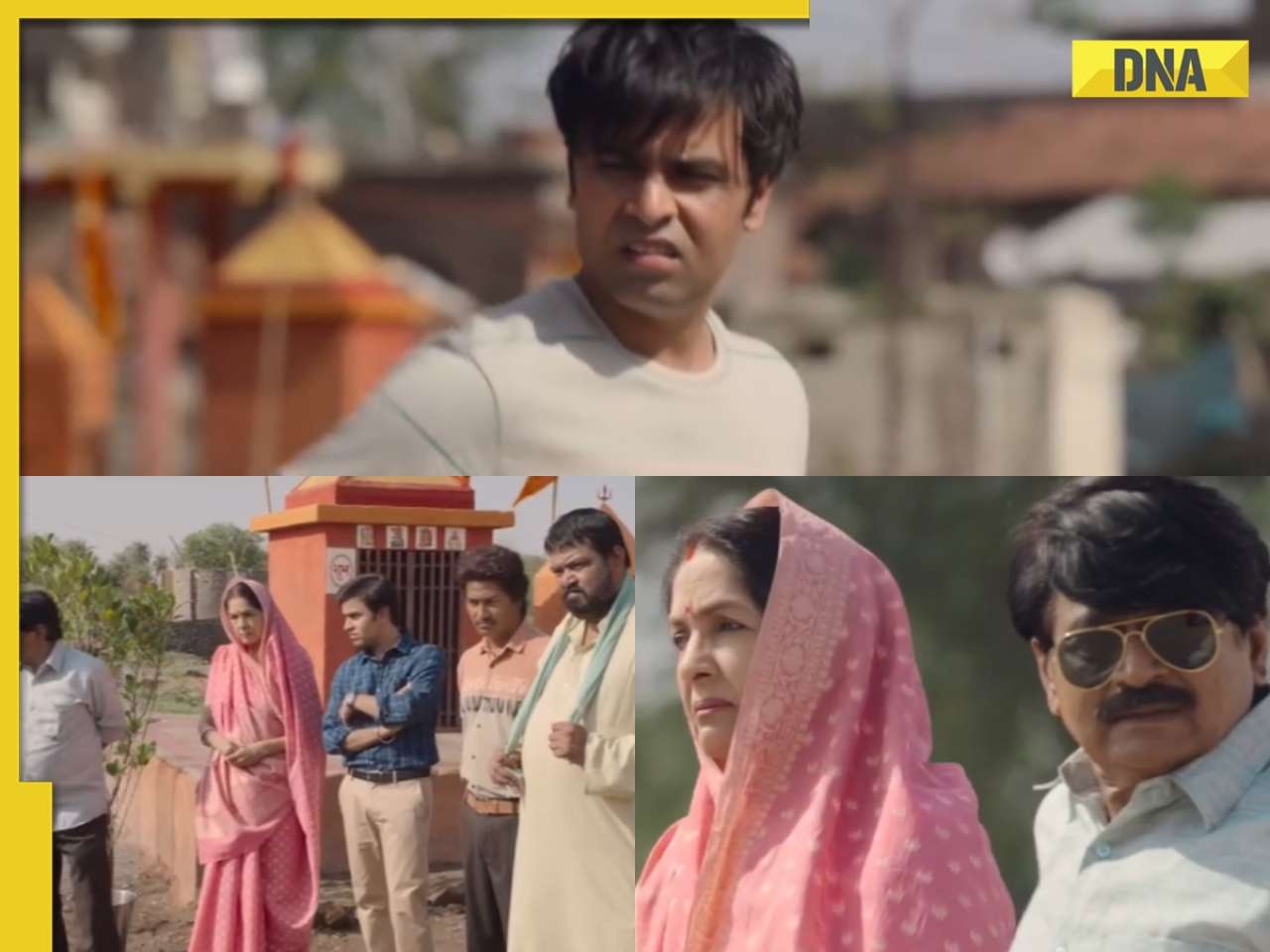










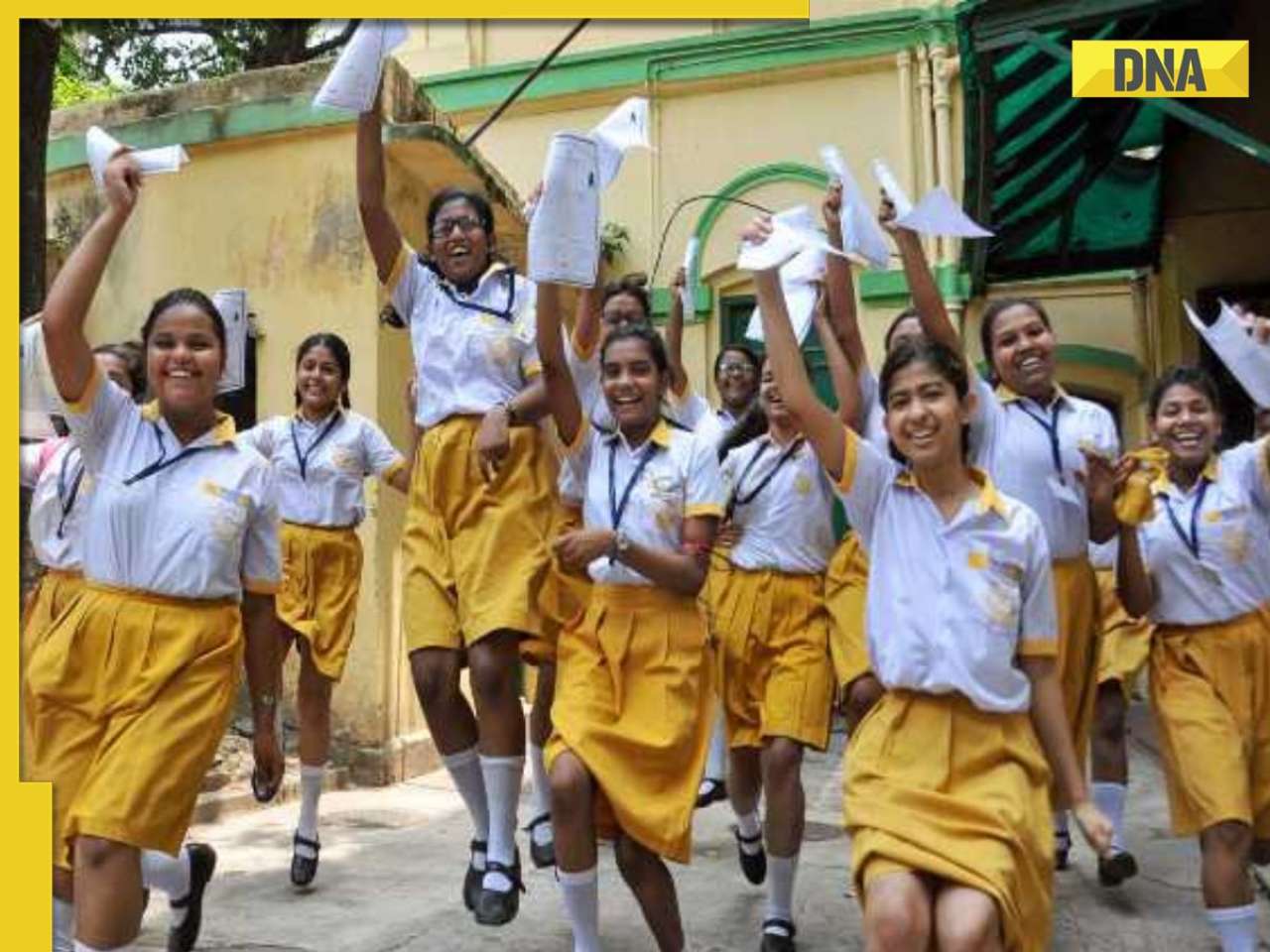
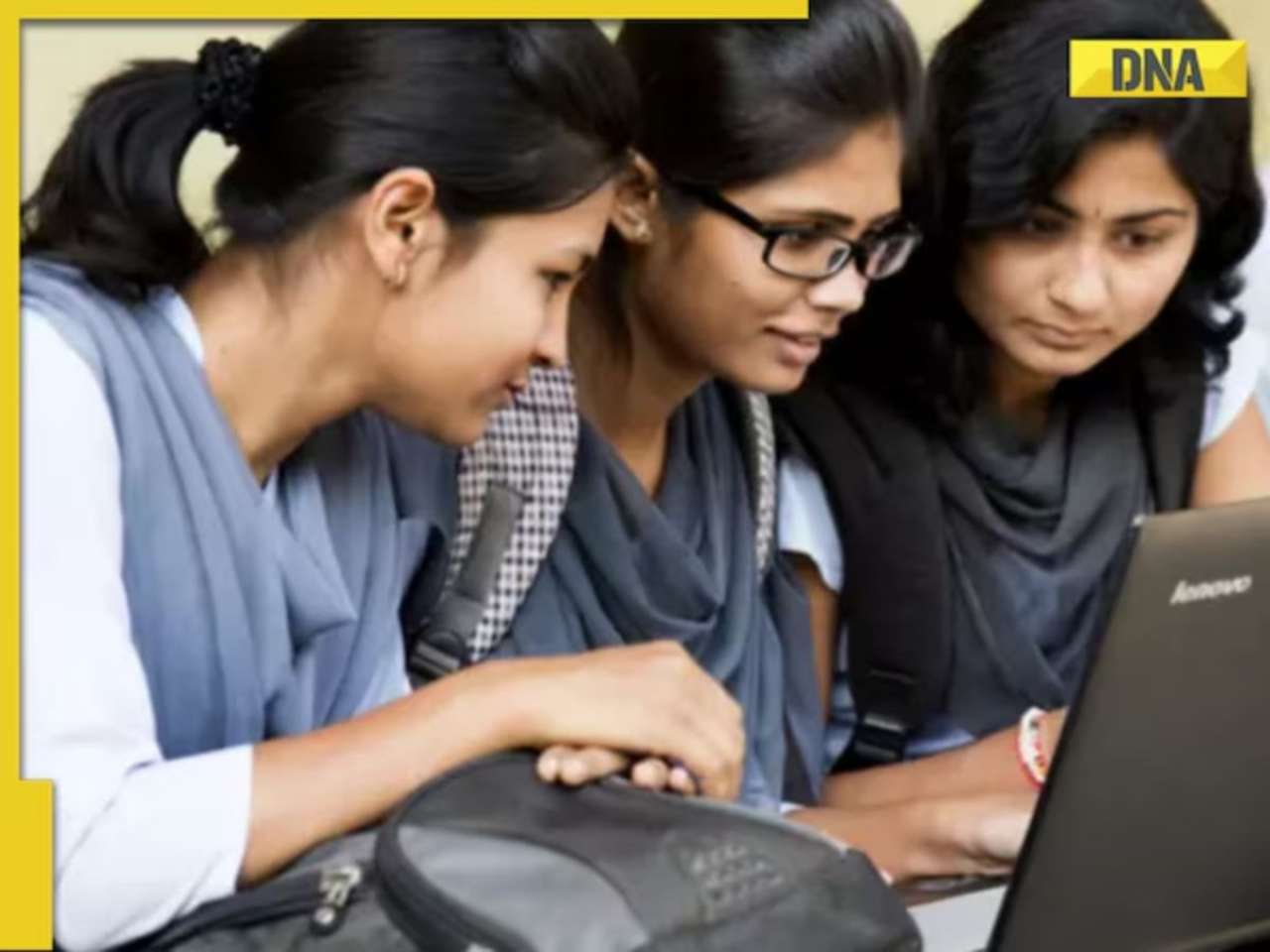
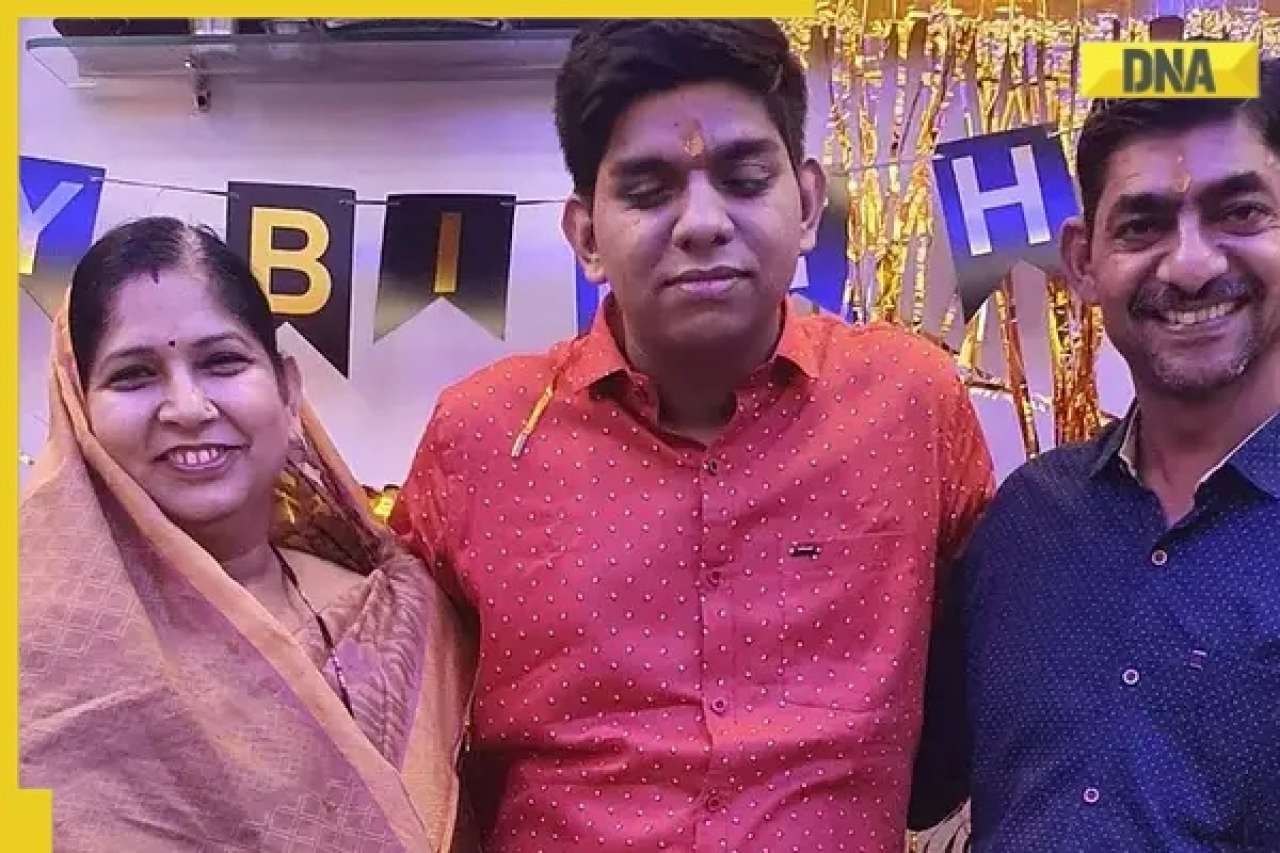
















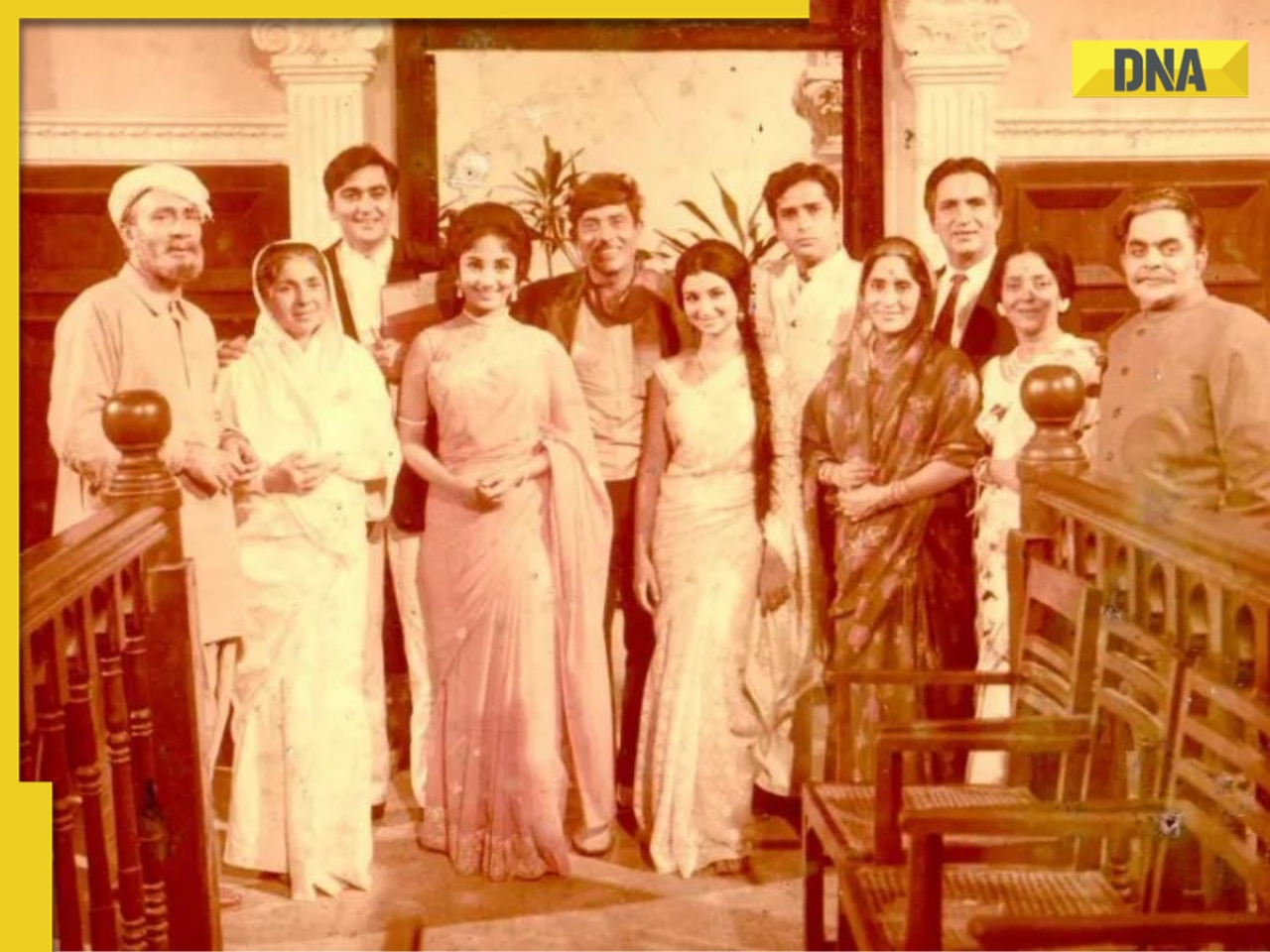
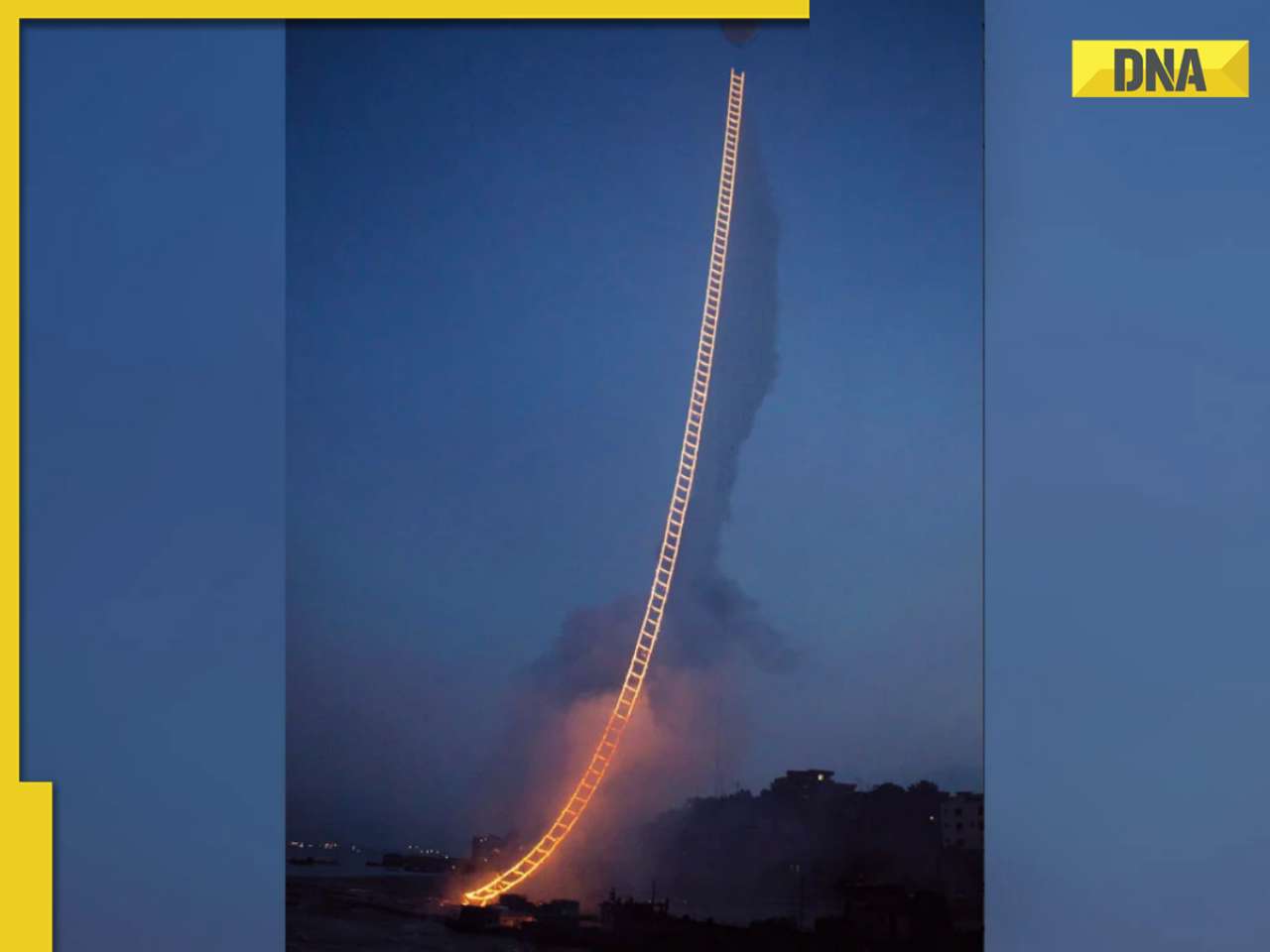
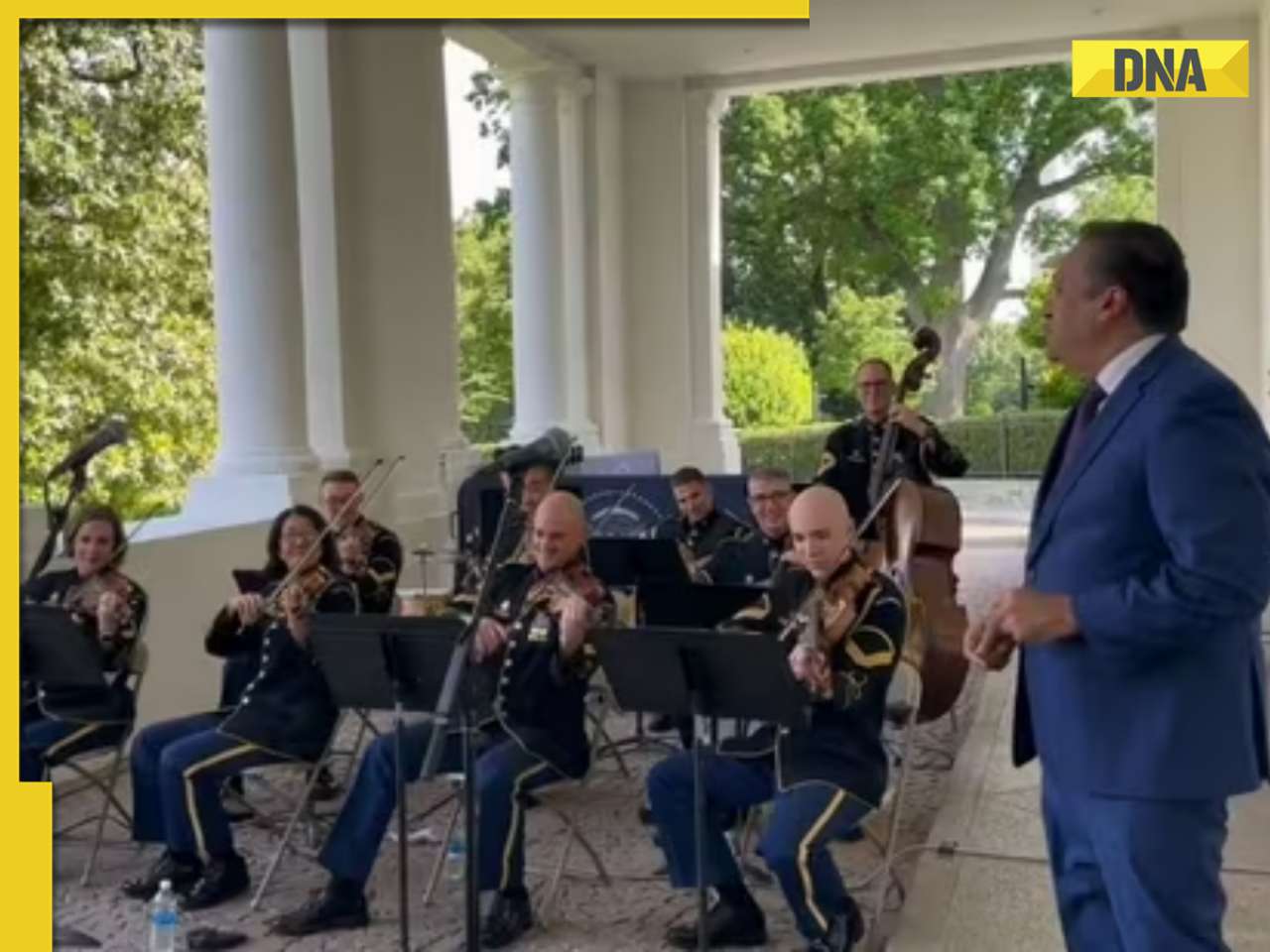












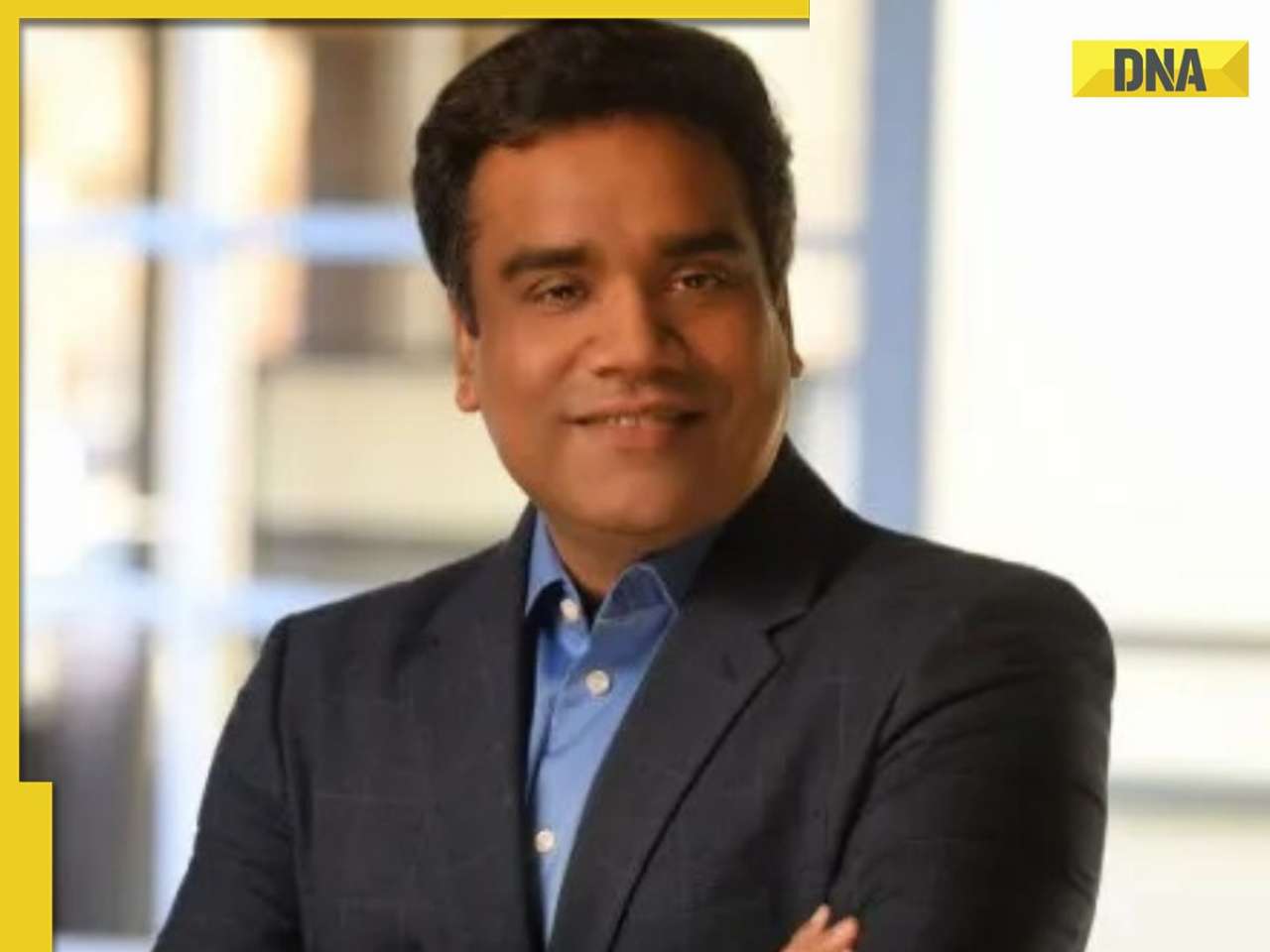








)
)
)
)
)
)